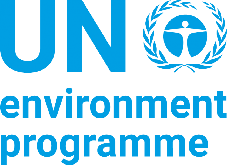Air pollution may be produced locally, but it can travel long distances, sometimes across continents on international weather patterns.
Air pollution is caused by a range of substances, including carbon monoxide, carbon dioxide, nitrogen dioxide, nitrogen oxide, ground-level ozone, particulate matter, sulphur dioxide, hydrocarbons and lead – all of which are harmful to human health.
HOUSEHOLD
The main source of household air pollution is the indoor burning of fossil fuels, wood and other biomass-based fuels to cook, heat and light homes. In 2021, household air pollution was linked to an estimated 2.9 million deaths each year, including more than 329,000 among children under the age of five, the vast majority of which are in developing countries.
108 out of 193 countries have increased the percentage of households that have access to cleaner burning fuels to over 85 per cent. Around 2.1 billion people continue to use wood, coal, charcoal or animal waste for cooking, heating and lighting. The adoption of cleaner, more modern stoves and fuels can reduce the risks of illness and save lives.
INDUSTRY
In many countries, energy production is a leading source of air pollution. Coal-burning power plants are a major contributor, while diesel generators are a growing concern in off-grid areas. Industrial processes and solvent use in the chemical and mining industries also pollute the air.
Policies and programmes aimed at increasing energy efficiency and production from renewable sources have a direct impact on a country’s air quality.
TRANSPORT
The global transport sector accounts for almost one-quarter of energy-related carbon dioxide emission, a number that is rising. These transport emissions have been linked to nearly 400,000 premature deaths, with diesel emissions accounting for nearly half of these deaths. Those living closest to major traffic arteries are up to 12 per cent more likely to be diagnosed with dementia.
Reducing vehicle emissions is an important intervention to improve air quality, especially in urban areas. Policies and standards that require the use of cleaner fuels and advanced vehicle emissions standards can reduce vehicle emissions by 90 per cent or more.
AGRICULTURE
There are two major sources of air pollution from agriculture: livestock, which produces methane and ammonia, and the burning of agricultural waste. Methane emissions contribute to ground-level ozone, which causes asthma and other respiratory illnesses. Measured over a 20-year period, methane is 80 times more potent than carbon dioxide in causing global warming. Around 24 per cent of all greenhouse gases emitted worldwide come from agriculture, forestry and other land-use.
There are many ways to reduce air pollution from farming. People can move to a plant-based diet and reduce food waste, while farmers can reduce methane from livestock by optimizing feed digestibility and improving grazing and grassland management.
WASTE
Open waste burning and organic waste in landfills release harmful dioxins, furans, methane and black carbon into the atmosphere. Globally, an estimated 40 per cent of waste is openly burned. The problem is most severe in urbanizing regions and developing countries. Open burning of agricultural or municipal waste is practiced in 166 out of 193 countries.
Improving the collection, separation and disposal of solid waste reduces burning and the amount sent to landfills. Separating organic waste and turning it into compost or bioenergy improves soil fertility and provides an alternative energy source. Reducing the estimated one-third of all food that is lost or wasted can also lead to improved air quality.
OTHER SOURCES
Not all air pollution comes from human activity. Sand and dust storms are particularly concerning; fine particles of dust can travel thousands of miles on the back of these storms, which may also carry pathogens and harmful substances, causing acute and chronic respiratory problems.
Here are a few ways we can address the sources of air pollution:
- Vote with your voice and wallet. You can urge governments and business to take stronger action. Individually, you can make lifestyle changes to reduce fuel and power consumption, waste less food and more.
- Governments can adopt and enforce world-class environmental standards for clean fuels, and introduce more clean and energy-efficient vehicles.
- Cities can create strong public transit systems and transportation plans that prioritize walking, cycling and public transit.
- Businesses can take direct action by reducing their emissions and pioneering new technologies to help us live cleaner, less wasteful lives.
If we all act, we can all breathe more easily. We can’t do it without you.
